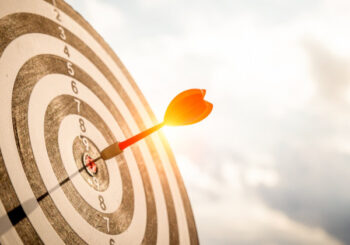By Lily Anderson
Staff Writer for Wake Up World
In the hustle and bustle of our daily lives, maintaining focus on tasks can often feel like an uphill battle. Whether it’s studying, working, or tackling routine chores, distractions seem to lurk around every corner. However, a recent study led by Matthew K. Robison, an assistant professor of psychology at The University of Texas at Arlington, sheds light on a simple yet powerful strategy to enhance attention and keep distractions at bay.
The Challenge of Sustaining Attention
Robison’s research, published in the peer-reviewed journal Attention, Perception & Psychophysics, delves into the intricacies of maintaining attention over time. He points out that our ability to stay focused is influenced by various factors such as motivation, arousal, and alertness. The study explores why it’s challenging to sustain a high level of focus, especially during mundane or repetitive tasks.
“In many activities, it is difficult to maintain a high level of focus over time. Our research asks why this is the case,” explains Robison.
The Impact of Goal-Setting on Focus
The research emphasizes a game-changing revelation – the implementation of a straightforward and easily adoptable behavioral change: goal-setting. Setting specific goals for oneself can significantly improve the ability to maintain task focus over time, according to Robison.
“Our results provide evidence that a simple and easily implementable change in behavior — setting specific goals for oneself — can significantly improve our ability to maintain task focus over time,” says Robison.
Navigating Distractions in Everyday Life
Distractions are an inevitable part of our lives, ranging from daydreaming about a new romantic interest to reacting to external stimuli like a car honking. While most attention lapses result in minor inconveniences, serious repercussions can occur in professions where precision is paramount, such as a train operator failing to react to an incident or a surgeon forgetting a step in an operation.
Unpacking the Study: Goal-Setting and Reaction Time
To investigate the impact of goal-setting on attention, Robison and his colleagues conducted a study with over 100 participants. The participants were tasked with reaction time activities for approximately 25 minutes. In a standard control condition, where participants were only instructed to respond as quickly as possible, reaction times increased over time, indicating a decrease in task focus.
However, when specific goals were introduced, such as maintaining reaction times below certain thresholds that progressively became more challenging, the participants exhibited a notable improvement in sustained attention.
“In this condition, reaction times systematically increased across time, consistent with the idea that task focus was decreasing,” notes Robison. “However, when we gave them specific goals to pursue and made those goals harder over time (e.g., keeping their reaction time below 450 milliseconds, then 400, then 350), they did not show that effect.”
Implications for Everyday Life
The findings of this research have significant implications for various settings, including studying and working, where lapses in attention can lead to impaired performance. By incorporating goal-setting techniques into our daily routines, individuals may find it easier to stay focused and minimize attention lapses.
In conclusion, the study underscores the transformative potential of a simple mindset shift—setting goals—as a tool to unlock and sustain our attention in a world filled with distractions. As we navigate the challenges of our modern lives, this research invites us to reconsider how we approach tasks, offering a beacon of hope for those seeking to reclaim control over their focus and productivity.
Reference:
- Deanna L. Strayer, Matthew K. Robison, Nash Unsworth. Effects of goal-setting on sustained attention and attention lapses. Attention, Perception, & Psychophysics, 2023; DOI: 10.3758/s13414-023-02803-4
About the author:
Lily Anderson is a passionate wordsmith and dedicated explorer of cutting-edge scientific inquiries. Fuelled by a thirst for knowledge, she skilfully transforms intricate ideas into relatable tales, inviting readers to embark on a captivating expedition of revelation. Lily’s efforts play a crucial role in bridging the gap between experts and the wider public, evoking a sense of awe and encouraging insightful discussions about groundbreaking scientific advancements.

If you've ever found value in our articles, we'd greatly appreciate your support by purchasing Mindful Meditation Techniques for Kids - A Practical Guide for Adults to Empower Kids with the Gift of Inner Peace and Resilience for Life.
In the spirit of mindfulness, we encourage you to choose the paperback version. Delve into its pages away from screen glare and notifications, allowing yourself to fully immerse in the transformative practices within. The physical book enriches the learning process and serves as a tangible commitment to mindfulness, easily shared among family and friends.
Over the past few years, Wake Up World has faced significant online censorship, impacting our financial ability to stay online. Instead of soliciting donations, we're exploring win-win solutions with our readers to remain financially viable. Moving into book publishing, we hope to secure ongoing funds to continue our mission. With over 8,500 articles published in the past 13 years, we are committed to keeping our content free and accessible to everyone, without resorting to a paywall.









